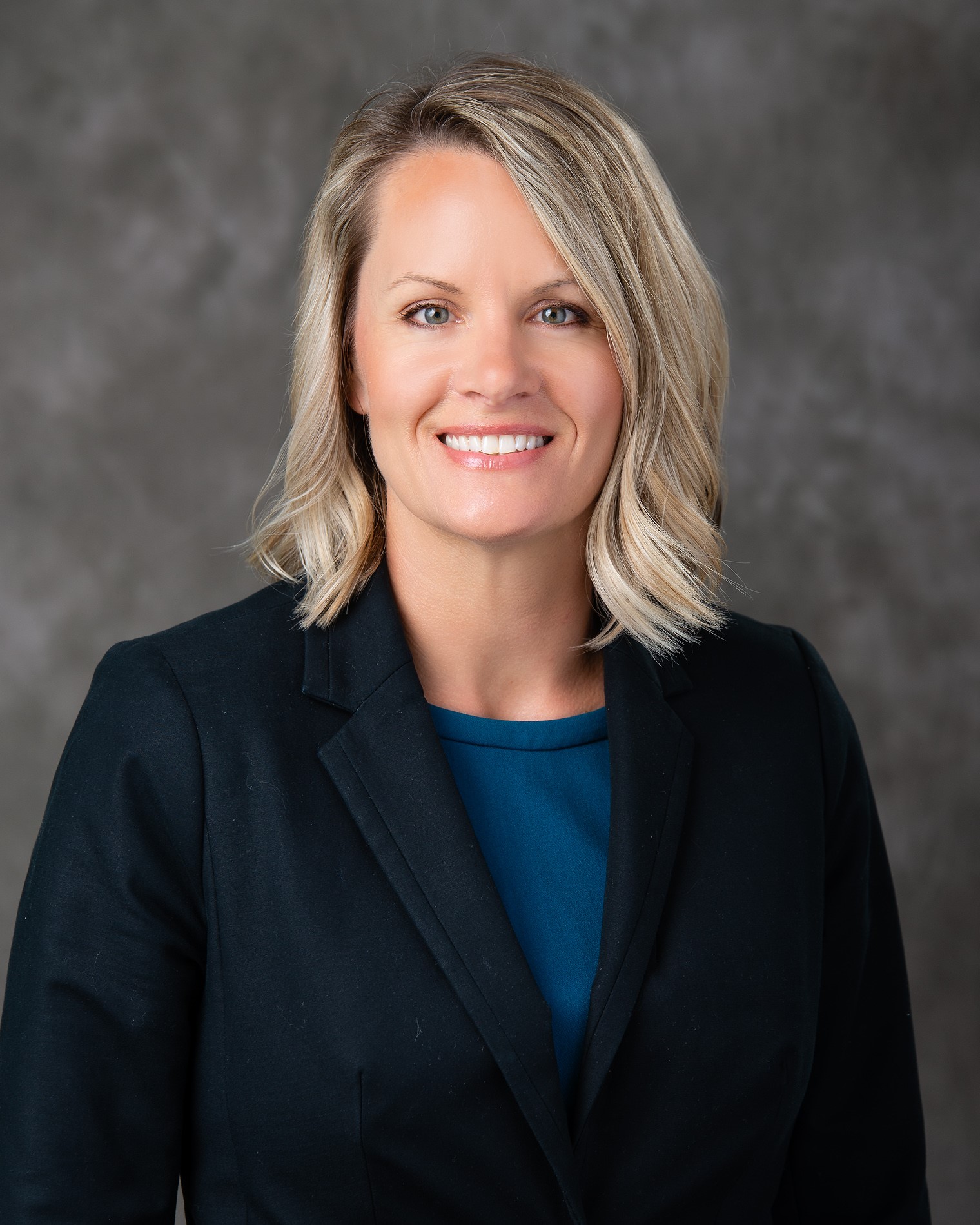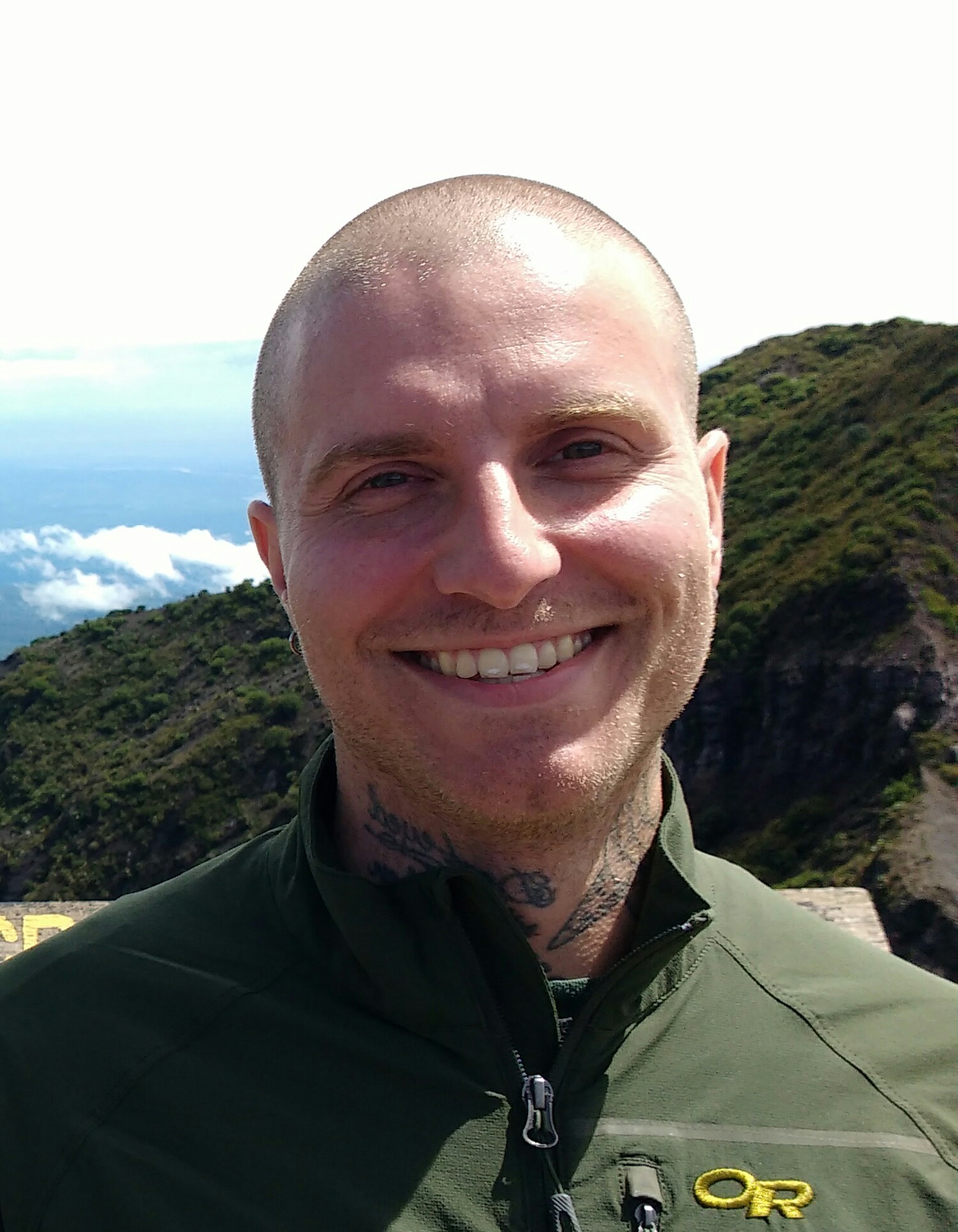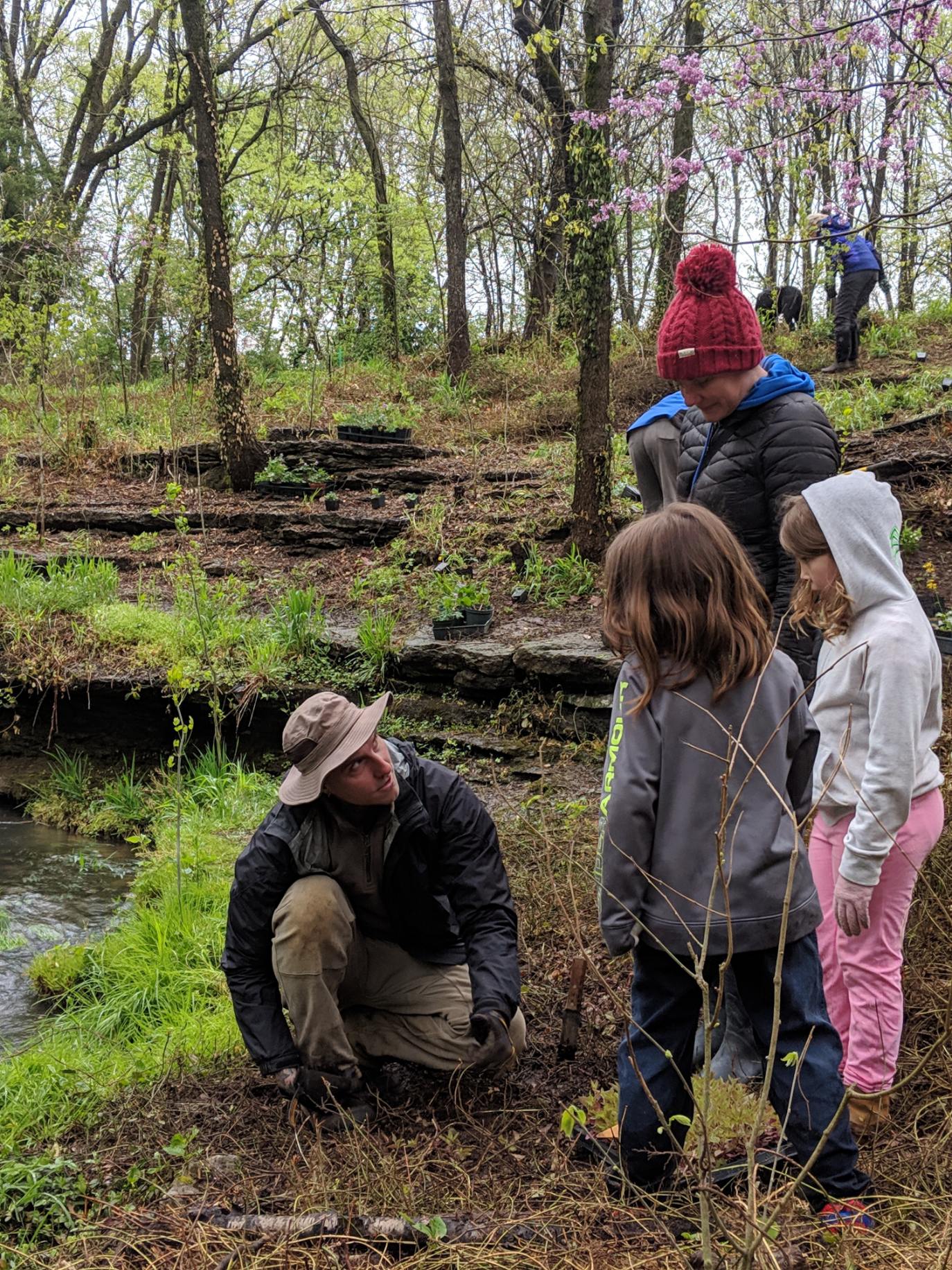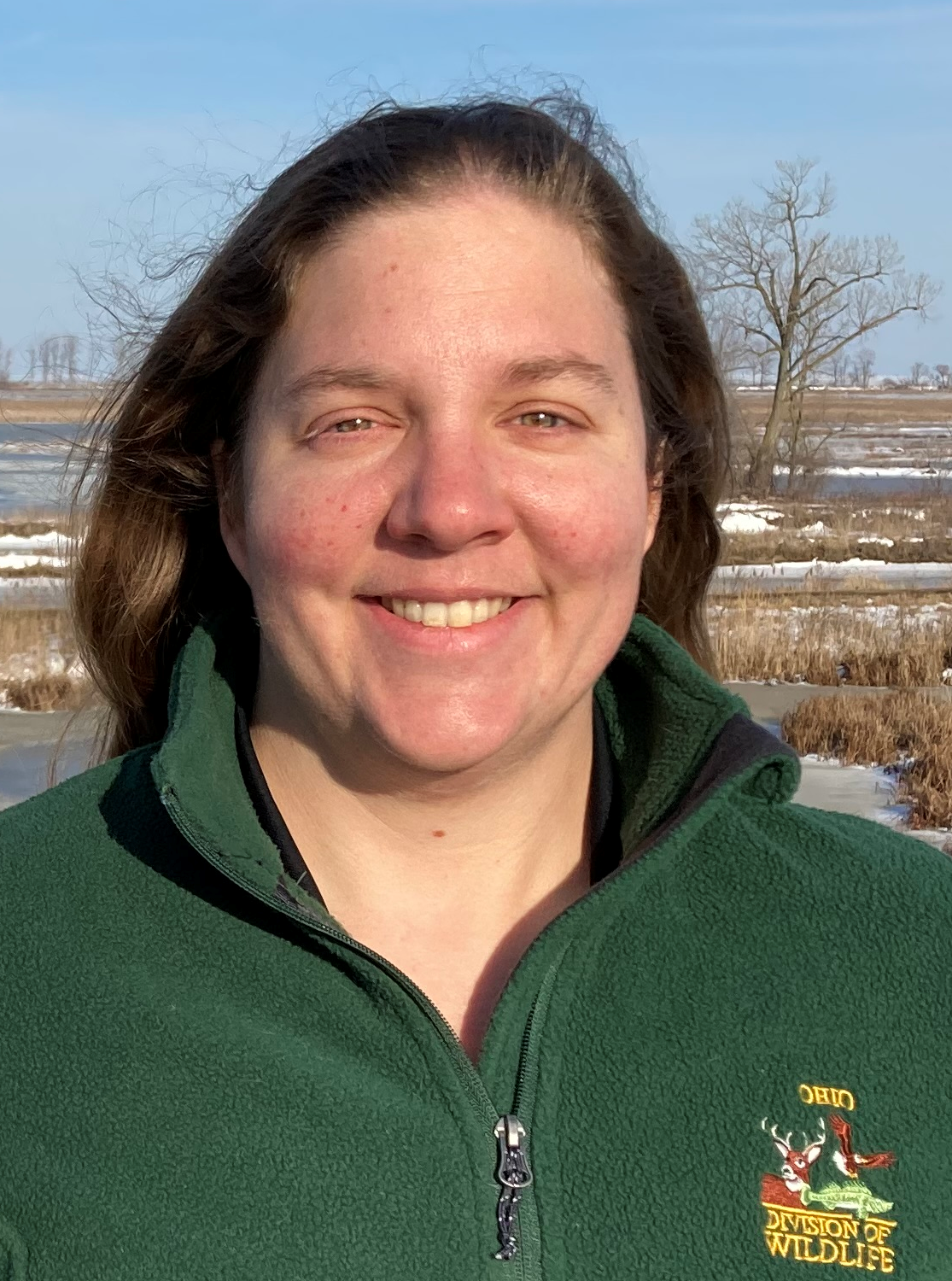Careers
Alumni
Our alumni are doing incredible things around the world. Since the program's inception in the late 1990s, the Natural Resources and Environmental Science (NRES) program has graduated over 500 environmental and natural resource professionals. We believe in sharing the stories of their success and building connections between our graduates and the next generation of natural resource and environmental science leaders. Explore which direction our graduates have taken in their careers through the NRCM/NRES alums highlighted below.
If you're an NRES graduate, we want to hear from you! Contact angel@uky.edu to share your story as a part of our growing network of University of Kentucky NRES professionals.
Kristi Miller
Current Title: Vice President of Development
Current Company: Vitis Energy
Website: https://vitisenergy.com/
Q1: What inspired you to pursue a career in Natural Resources and Conservation Management (NRCM)?
I always enjoyed being outdoors and learning about science. I networked with a friend of Tom Greider (my former advisor at UK) and was told that I could actually pursue a degree in the field of Natural Resources. I quickly changed my major and the rest is history. Being involved in a natural resource field is fulfilling since your work results in tangible changes.
Q2: How have the skills you gained as an undergraduate evolved throughout your career? At the time I attended UK, we had the Natural Resources Conservation & Management degree. There was a focus on water, air, and earth resources. I ended up choosing to spend my career in energy, but those core subjects have been useful. In the renewable energy field, we begin our development process with land acquisition and permitting. The courses in the NRCM curriculum did prepare me for the wetland permitting, NEPA, endangered species, and other studies that are required for site selection.
Q3: Describe your current position and day-to-day job responsibilities.
I am the Vice President of Development at an energy company, so I oversee all things related to developing renewable energy projects, including solar, battery storage, and renewable natural gas. My team and I run the entire development process for these projects, from greenfield through construction. This includes site selection, GIS/mapping, permitting, environmental studies, electrical interconnection, engineering, and procurement. It is also useful to have great project management skills within this role, since a developer is responsible for the scope, schedule, and cost of a renewable energy project.
Q4: What advice would you give to current students or recent graduates of NRES?
Focus on the area of NRES that you love and aspire to work in, but don’t forget to take classes that will enhance your business acumen. You will need to have a solid understanding of business and finance if you want to continue into management positions as you grow with the company. If you are offered an internship in anything related to your preferred career, take it! Experience is so valuable on your resume. Hiring managers love to see that you have work experience in addition to your education.



Nachie Braga
Current Title: Head Thaumaturge
Current Company: Geomancer Permaculture
Website: http://www.instagram.com/geomancerpermaculture
Q1: What inspired you to pursue a career in Natural Resources and Environmental Science (NRES)?
This sounds so silly in retrospect, but it really took me a while to realize that this career was even possible. I started college to become a welder, and then somewhere along the way learned that I could take classes on trees and learn how to identify plants. I didn’t really have a well thought out plan as to how that was going to turn into a career, but I felt my heart calling me to study this and figure out the details later. That might make it sound a little more flippant than it really was, because I also understood at a deep level that the natural world is the material basis for everything in our civilization, and so there will always be an important role for natural resources professionals - increasingly so in an era of global climate instability.
Q2: How have the skills you gained as an NRES undergraduate evolved over time?
When I was in the program it was like drinking from a firehose; so much information and you’re just keeping your head down trying to acquire the practical skills whether that be fieldwork or in the lab. But once you start advancing in your career, all those things begin to synthesize a little more. You realize that it might not be so much about this or that specific skill, but that because you’ve been exposed to these things you’re developing a capacity to be more broadly conversant in the field and how to work in the kind of interdisciplinary way that so often defines natural resources. You begin to add your own subjectivity to it. And, of course, once I got out in my career I started discovering all of the different mistakes you can make, and that is always an invaluable education that sharpens your skills over time.
Q3: Describe your current position and day-to-day job responsibilities.
I’m fortunate to be in a position where there is an enormous diversity in the work I get to do. As a small business owner I do have to handle all of the tedious administrative tasks, but I also get to directly participate in every stage of a project coming together. Much of my time is spent doing manual labor outdoors because that is what actually pays the bills, but sometimes a project will take years of planning behind the scenes before it ever gets to that point. So I have a lot of what I call “clean pants” days where I’m going to meetings or working on policy. My company has also started doing more with environmental education, so I get to do some public speaking and that helps me find my voice and explore how I want my career to keep evolving in the years to come.
Q4: What advice would you give to prospective or current students of the NRES program?
I know that the “choose your own adventure” interdisciplinarity of the program can be intimidating, but it’s your greatest asset! NRES students have the opportunity to dabble in different subjects and even different Colleges in a way that just isn’t available to other majors. Choose your advisor well so that you can stay close to your core area of focus, but don’t hesitate to ask your Program Coordinator about some of the more esoteric options available. And finally, really use your time as a student to start building relationships in your field. You’ll be exposed to dozens of environmental professionals over the course of an NRES program, so get to know them!
Christina Kuchle
Current Title: Wetland Habitat Program Administrator for the Division of Wildlife
Current Company: Ohio Department of Natural Resources
Q1: What inspired you to pursue a career in Natural Resources and Conservation Management (NRCM)?
Natural resources have made our society what it is. Mindful management of our water, air and soil will shape the future. Plus, management of our natural resources is intertwined with economics, history, and conservation philosophy. Thus, the questions surrounding natural resource management are complex and I enjoy the challenge.
Q2: What essential skills did you acquire during/following the NRCM program?
Being able to quickly analyze and draw informed conclusions from data has been a very useful skill. Trying to gauge the knowledge basis of the public or other constituents you are working with is also very important. It doesn’t matter how smart you are or how much technical skill you have. If you cannot explain things in a way that others can understand, it’s difficult to make progress.
Q3: Tell us about your current career and how it is related to natural resources and environmental science.
I’m currently the Wetland Habitat Program Administrator for the Division of Wildlife within the Ohio Department of Natural Resources. I have the opportunity to shape statewide conservation policy to influence the restoration of wetlands and grasslands across the state. These restorations have strong implications for water quality protection, especially in the Western Lake Erie Basin, which has a history of harmful algae blooms that threaten drinking water resources for millions of people and impact a 17.2-billion-dollar recreational industry.
Q4: What advice would you give to current students or recent graduates of NRES?
1.) Focus on something that interests you and pursue it directly. 2.) Take advantage of opportunities as they come along and be flexible. 3.) Build the skills to empathize with people you are working with both within and beyond the field. 4.) Build skills, not course lists. Make sure you take advantage of any field experiences you can where you can work directly with experts. Course work helps to build a basis of knowledge, but you must build on that knowledge by seeking out experience.

